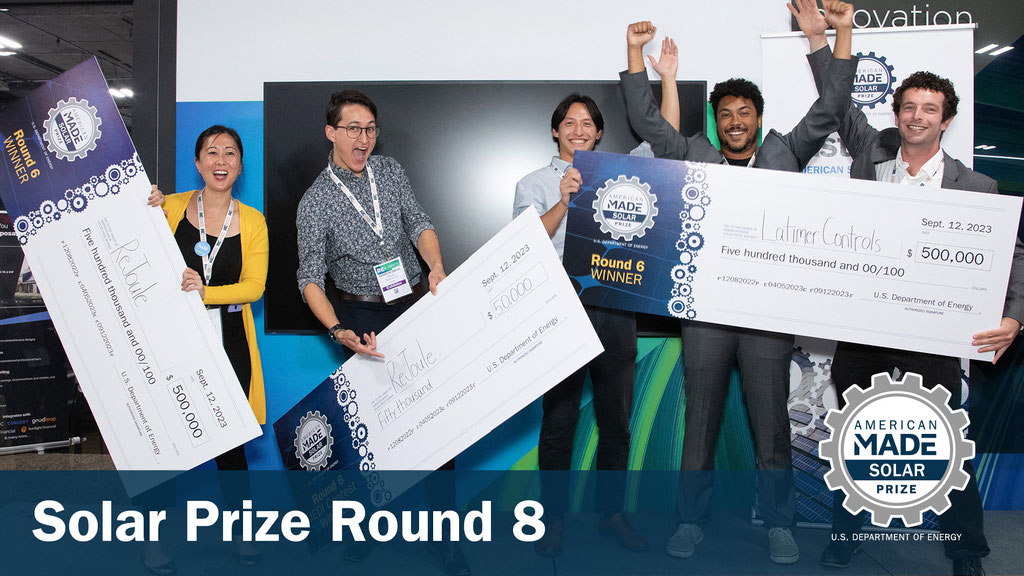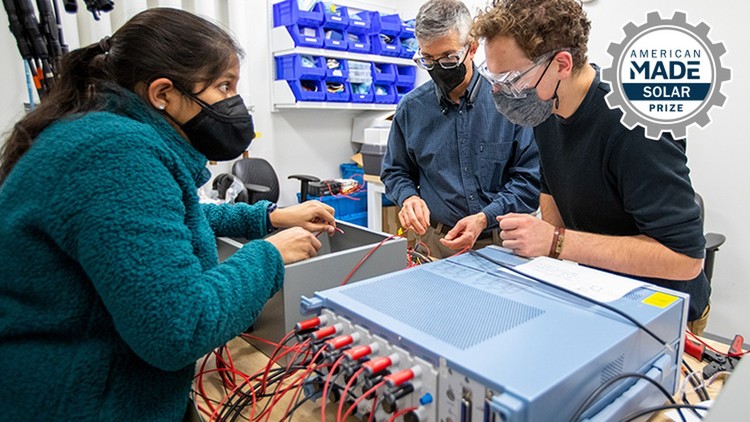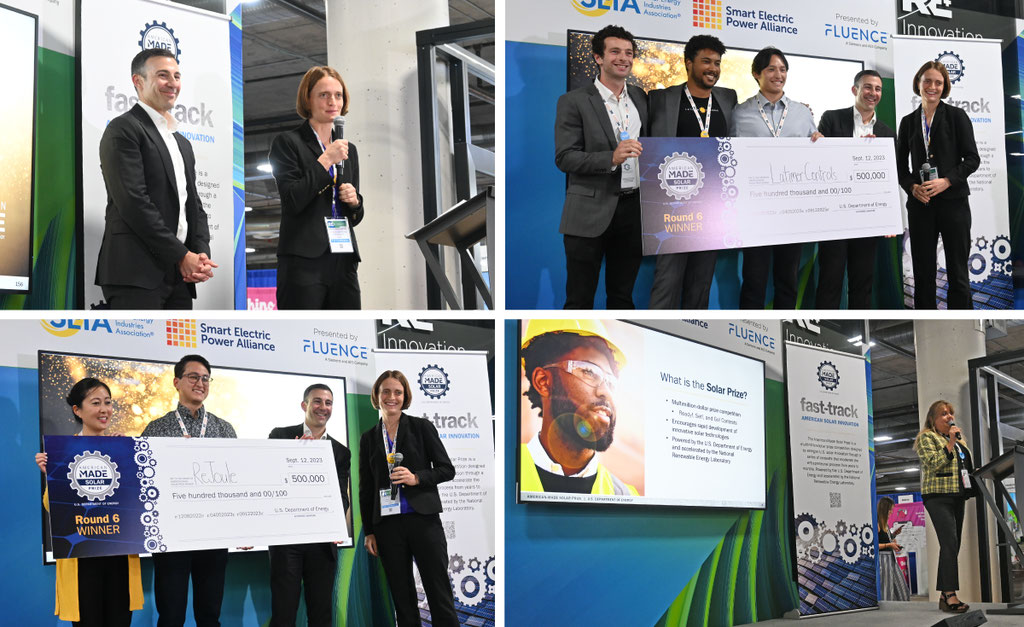Solar Prize Contests
Innovation happens when the right resources, people, and passion come together. With the American-Made Solar Prize Round 6, teams of creative individuals and entrepreneurs advance conceptual solutions toward product realities with the support of a unique and powerful network and a chance to win part of $4.1 million in prizes.
A Prize Competition Structured for Success
The Solar Prize encourages the rapid development of innovative solar energy solutions capable of addressing the tough challenges facing the solar industry. Solar Prize competitors participate in three contests—the Ready!, Set!, and Go! Contests—to transform their ideas into reality in months, rather than years. Competitors have the chance to win part of $4.1 million in prizes to help them advance in the competition and accelerate the development of their solution.
Round 6 includes an optional additional challenge that focuses on advancing solar in underserved communities. Participants who choose to incorporate this initiative into their solutions have the chance to be considered for a new Justice, Equity, Diversity, and Inclusion (JEDI) Contest and a bonus cash prize!
More than $3 Million in Incentives for Innovation
The Ready!, Set!, and Go! Contests fast-track efforts to identify, develop, and test disruptive solutions to solar industry needs for a total of $3 million in cash prizes and $900,000 in vouchers that can be used at national laboratories and other voucher facilities to develop, test, and validate. Each contest has a performance period when participants work to advance their solutions.
The Ready!, Set!, and Go! Contests
- Ready! Contest
20 winners / $50,000 cash prize each and optional JEDI Contest prize
Winners are selected after identifying an impactful idea or solution addressing a critical need in the solar industry; - Set! Contest
10 winners / $100,000 cash prize each, $75,000 support voucher each, and optional JEDI Contest prize
Competitors work to substantially advance their technology solution toward a viable and promising proof of concept. - Go! Contest
2 winners / $500,000 cash prize each, $75,000 support voucher each, and optional JEDI Contest prize
Competitors work to substantially advance their solution from proof of concept to a refined prototype and find a partner to perform a pilot test of the prototype.
Demo Days
During the competition, competitors in the Set! and Go! Contests pitch and demonstrate proofs of concept and prototypes to a judging panel and audience at two live, in-person Demo Day events. Demo Days are opportunities to meet competitors, Connectors, Power Connectors, and other members of the American-Made Network. Demo Days culminate in the announcement of Set! finalists and Go! winners.
Connecting You to the Innovation Engine
The American-Made Network provides support to Solar Prize competitors throughout the competition and is comprised of national labs, incubators, investors, facilities, and seasoned industry mentors. The American-Made Network strengthens and scales the critical connections needed to grow new businesses, develop solutions, and sustain American innovation. Members of the Network provide the tools, technical insight, product validation, industry expertise, and strategic support teams need to succeed throughout the competition.
Anyone can Compete
Competitors are entrepreneurial individuals or teams, legally residing or based in the U.S., including members of one or multiple organizations, students, university faculty members, small business owners, researchers, or anyone with the desire and drive to transform ideas into impactful realities.
Here's how to join the Solar Prize Round 6:
- Identify an important problem you want to solve
- Submit a 90-second video describing your challenge and proposed solution, team, and plan
- Answer a short, four-question narrative and make a slide about this problem or challenge
- Submit a two-page technical assistance request
- Update your videos and statements as you advance through the contests.
Challenge Guidelines
Please review the official rules for the complete application process and instructions for competing.
If you want to receive updates on the prize or have any questions, please subscribe by using the contact feature on the HeroX platform or message us directly at .
The American-Made Solar Prize is a multimillion-dollar prize competition designed to energize U.S. solar innovation through a series of contests that accelerate the entrepreneurial process from years to months. The American-Made Solar Prize is directed and administered by the National Renewable Energy Laboratory and is funded by the U.S. Department of Energy Solar Energy Technologies Office. Learn more.

















